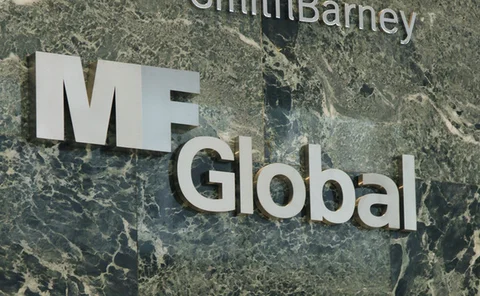CCP
WHAT IS THIS? A central counterparty (CCP) manages default risk by collecting initial and variation margin from both parties to a trade. Spill-over losses are absorbed via a default fund to which all members contribute – introducing a degree of mutualised risk – and by the CCP’s own capital. The concept is an old one that was extended to over-the-counter derivatives in the aftermath of the financial crisis.
Conservatives take CCPs to heart after UK/EU split
David Cameron's demand for the UK to be exempt from an ECB policy on clearing houses helped prompt last month's split with the EU - and is earning applause from eurosceptic Conservatives
Risk.net poll: CFTC should re-think $50m rule for CCPs
More than three-quarters of respondents to a Risk.net poll think rule capping membership criteria at $50 million in capital should be changed following collapse of would-be clearer MF Global
Asia Risk 2011 interdealer rankings: Dealers
The eurozone crisis has been the main driver of Asian markets in recent months, and with concerns about a possible break-up of the euro growing, end-users have been reluctant to invest. In what has been a tricky environment for dealers, market…
Asia’s opinions on Basel III
The Basel Committee has published rules on the capitalisation of bank CCP exposures and global Sifis in recent months. It will now monitor how the rules are implemented, and tweak calibrations where necessary. Asia Risk talks to a selection of leading…
Countdown to the G-20 deadline
Just 12 months to go until all standardised OTC derivatives are supposed to be cleared through CCPs – but meeting that deadline everywhere looks unlikely
HK OTC rules add to cross-border concerns
The Securities and Futures Commission and Hong Kong Monetary Authority released a joint consultation on their plans to overhaul OTC derivatives regulation in October. But how will the rules fit with the patchwork of legislation drawn up elsewhere? And…
OECD debt offices call for derivatives collateral debate
New report calls for debt offices to weigh the pros and cons of two-way collateral and clearing
HK margin rules on uncleared swaps should include exemptions, say market participants
HK margin rules on uncleared swaps should include exemptions, say market participants
Risk technology rankings 2011
The regulatory push
Middleware vendors face turf war with Sefs
Cutting out the middleware?
Review of 2011: collateral, capital and chaos
Collateral, capital and chaos
JSCC still keen on CCP interoperability
A plea for CCPs
SFC: wrestling with local versus international
The comment period for the joint Securities and Futures Commission (SFC) and Hong Kong Monetary Authority (HKMA) consultation paper on the regulatory regime for OTC derivatives closed on November 30. SFC chief executive Ashley Alder and executive…
FX clearing has taken an illogical course, panellists warn
Non-deliverable forwards are the current focus for FX CCPs and banks, but panellists argue the risk in those products is negligible
MF Global: non-US clients caught in cross-border collateral trap
Omnibus structure meant clearing clients of MF Global outside the US were asked to double up on collateral payments. Use of the structure for OTC markets is now in doubt
LCH.Clearnet appoints new CEO of CDSClear
UK-based clearer appoints Markit's former fixed-income director as chief executive of CDS clearing service
Change to Japan clearing mandate ends LCH-JSCC talks
A decision to limit the scope of Japan's clearing mandate has torpedoed months of partnership talks between LCH.Clearnet and the Japan Securities Clearing Corporation
CLS pushing 'transformation' agenda, says Bozian
The central settlement utility is feeding greater resources into expanding its universe of currencies, according to chief executive Alan Bozian
Work needed to ensure regulations mesh, says SFC’s Alder
Further international co-ordination is needed if the G-20 deadline for central clearing of standardised OTC derivatives is to be met, says new SFC chief executive
MF Global collapse should prompt rethink of CFTC rule on CCP membership, say dealers
The bankruptcy of MF Global should prompt the CFTC to reconsider the $50 million cap on minimum capital requirements set by CCPs on clearing members, say bankers
Despite hurdles, clearers map out forex ambitions
Clearing a way for forex
CFTC urged to rethink rules that threaten cross-margining
Pushed to the margins






















